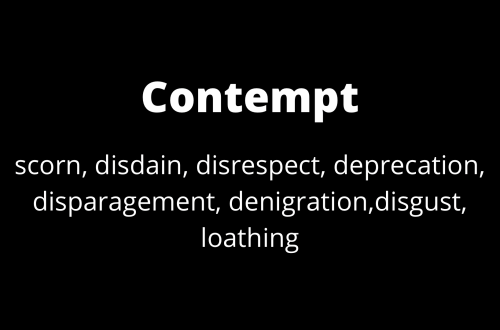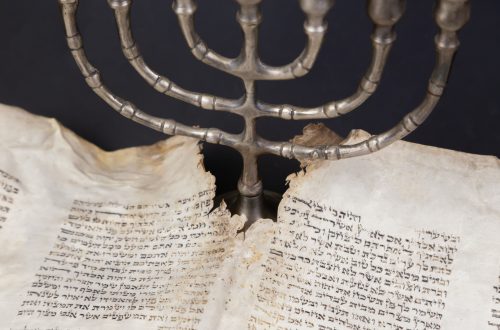Social Gospel or Gospel with Social Ramifications?
Before I became a Christian, I attended churches where I heard the “social gospel.” That is, I learned all about doing good works, but I didn’t actually know how to have peace with God through Christ. I thought good works were the way to such peace. But grace means that works follow salvation, not the other way around.
Unfortunately, since becoming a Christian, I have often encountered an equally distorted view at the other extreme. Christians who know how to have peace with God through Christ often view pretty much everyone committed to feeding the poor and clothing the naked as preaching a “social gospel.” Often such believers see good works like opening schools and hospitals and delivering food in famine as misguided efforts that are off-task from the real gospel work of telling the story about Jesus using words.
Last week I was in Turkana County, Kenya. Churches there gathered to greet us in places where we watched children dig holes in the sand to try to find clean water to scoop up. Indeed they found such water. And it was brown with mud. But at least it didn’t have camel urine in it like the shallow stream nearby. Entire villages showed signs of severe hunger. Some children had no clothes to wear. And we saw in their faces the face of Jesus Christ.
We took bags of maize and rice to distribute. One meal for a family. Or maybe a few meals, if they rationed. It wouldn’t stop their poverty—not for long. But we did what we could, taking our clues from Jesus. When the Lord’s disciples told him to send the crowds away to buy food, Jesus disagreed. Instead, he fed those who came to hear him. Maybe some came just for the food. But the presence of some moochers did not keep him—and should not keep us—from showing compassion to the rest. Last week we had the means, thanks to generous Christians, to take beans and maize with us.
Some people consider such actions as “social gospel” moves. But we see these actions not as living out “the social gospel,” but rather as living out the social ramifications of the gospel of Jesus Christ. Did you know that the apostle Paul, who certainly understood the gospel and its priority, spent more time in his epistles talking about redistribution of wealth in the universal church than he did about justification by grace through faith?
It all started with a prophesy: “At that time some prophets came down from Jerusalem to Antioch. One of them, named Agabus, got up and predicted by the Spirit that a severe famine was about to come over the whole inhabited world (this took place during the reign of Claudius) (Acts 11:27–28).
We know from history that the famine was bad. So what did the church do? They certainly did not give only to their local congregations to support the spreading of the good news about eternal life through Christ. Here is what the text says:
“So the disciples, each in accordance with his financial ability, decided to send relief to the brothers living in Judea. They did so, sending their financial aid to the elders by Barnabas and Saul” (vv. 29–30). Did you catch that? They sent relief. That is, money. Cash. Moolah. Churches across Greece and the then province of Asia (known to us as Turkey) collected money to send to people they didn’t know in the poor churches in Jerusalem. We refer to their actions as “The Jerusalem Collection.” And this collection was an integral part of Paul’s mission.
He didn’t just decide on his own that such good works were important. Sometime around the events recorded in Acts 12 to 15, Paul met with Christian leaders in the local church of Jerusalem (i.e., Peter, James, and John) to discuss the future of Paul’s mission to the Gentiles. He had some accountability. And at the end of it all, these men included instructions to Paul that part of his task was to “remember the poor” in Jerusalem, which Paul says “I was very…eager to do” (Gal. 2:10). Notice, he embraced doing so with eagerness rather than seeing it as something off-task that he would tack on to his preaching.
Now, “remember” does not mean to pray only and let God alone be responsible for providing. Such remembering also does not mean only to think about God’s people across the world and merely feel compassion for them. It means to recall and do something. When Paul sets out on what we call his Second Missionary Journey (recorded in Acts 15–21), he is going to wealthier Gentile believers in Asia and Greece and receiving gifts from them to take to the poor believers in Jerusalem.
The subject of this Jerusalem collection actually comes up a lot in Paul’s correspondence. When in Corinth writing to the Romans, he says, “Macedonia and Achaia have been pleased to make some contribution for the poor among the saints at Jerusalem” (Rom. 15:26). And their giving represents more than money from rich to poor. Many believe it also represents something equivalent to the churches in 1960’s Pebble Beach, California, sending money to God’s people in Montgomery, Alabama. The actions show solidarity that crosses racial boundaries because of the givers’ unity in Christ with those in need. Paul goes on to say, “For they (Gentiles) were pleased to do it, and indeed they owe it to them (the Jews). For if the Gentiles have come to share in their spiritual blessings, they ought also to be of service to them in material blessings” (15:27). Notice that Paul does distinguish between the spiritual and the material, but he does not take a Gnostic view that sees no harmony between two. In his mind, living out one’s Christianity requires both.
The Corinthian believers cited above are just one example of giving to the poor across the known world. Churches in Galatia did the same (1 Cor. 16:1), as did those in Philippi (2 Cor. 8–9), and probably others.
Part of Paul’s gospel work was to be a relief worker, redistributing the church’s wealth, because when one part of the Body suffers, all suffer. The elder John had a similar outlook: “If anyone has material possessions and sees a brother or sister in need but has no pity on them, how can the love of God be in that person?” (1 John 3:17)
And so did James: “What good is it, my brothers and sisters, if someone claims to have faith but does not have works? Can this kind of faith save him? If a brother or sister is poorly clothed and lacks daily food, and one of you says to them, “Go in peace, keep warm and eat well,” but you do not give them what the body needs, what good is it?” (Jas. 2:14–16).
Many Christians oppose government programs for the poor. But that’s not what I’m talking about here. That's for a separate discussion. Rather, I’m talking about what we as believers do in obedience. And I have it on good authority that such works matter deeply to our Lord. Consider what Matthew records Jesus as saying:
“… The king will say to those on his right, ‘Come, you who are blessed by my Father, inherit the kingdom prepared for you from the foundation of the world. For I was hungry and you gave me food, I was thirsty and you gave me something to drink, I was a stranger and you invited me in, I was naked and you gave me clothing, I was sick and you took care of me, I was in prison and you visited me.’ Then the righteous will answer him, ‘Lord, when did we see you hungry and feed you, or thirsty and give you something to drink? When did we see you a stranger and invite you in, or naked and clothe you? When did we see you sick or in prison and visit you?’ And the king will answer them, ‘I tell you the truth, just as you did it for one of the least of these brothers or sisters of mine, you did it for me.’ “Then he will say to those on his left, ‘Depart from me, you accursed, into the eternal fire that has been prepared for the devil and his angels! For I was hungry and you gave me nothing to eat, I was thirsty and you gave me nothing to drink. I was a stranger and you did not receive me as a guest, naked and you did not clothe me, sick and in prison and you did not visit me.’ Then they too will answer, ‘Lord, when did we see you hungry or thirsty or a stranger or naked or sick or in prison, and did not give you whatever you needed?’ Then he will answer them, ‘I tell you the truth, just as you did not do it for one of the least of these, you did not do it for me.’ And these will depart into eternal punishment, but the righteous into eternal life.” (Matt. 25:36–46).
Elsewhere, Matthew records Jesus as saying, “And whoever gives only a cup of cold water to one of these little ones in the name of a disciple, I tell you the truth, he will never lose his reward” (Matt. 10:42).
The universal church is suffering. Some of our members are persecuted, cold, hungry, thirsty (like the children in Turkana), and naked. What in God’s name are we doing to help?


